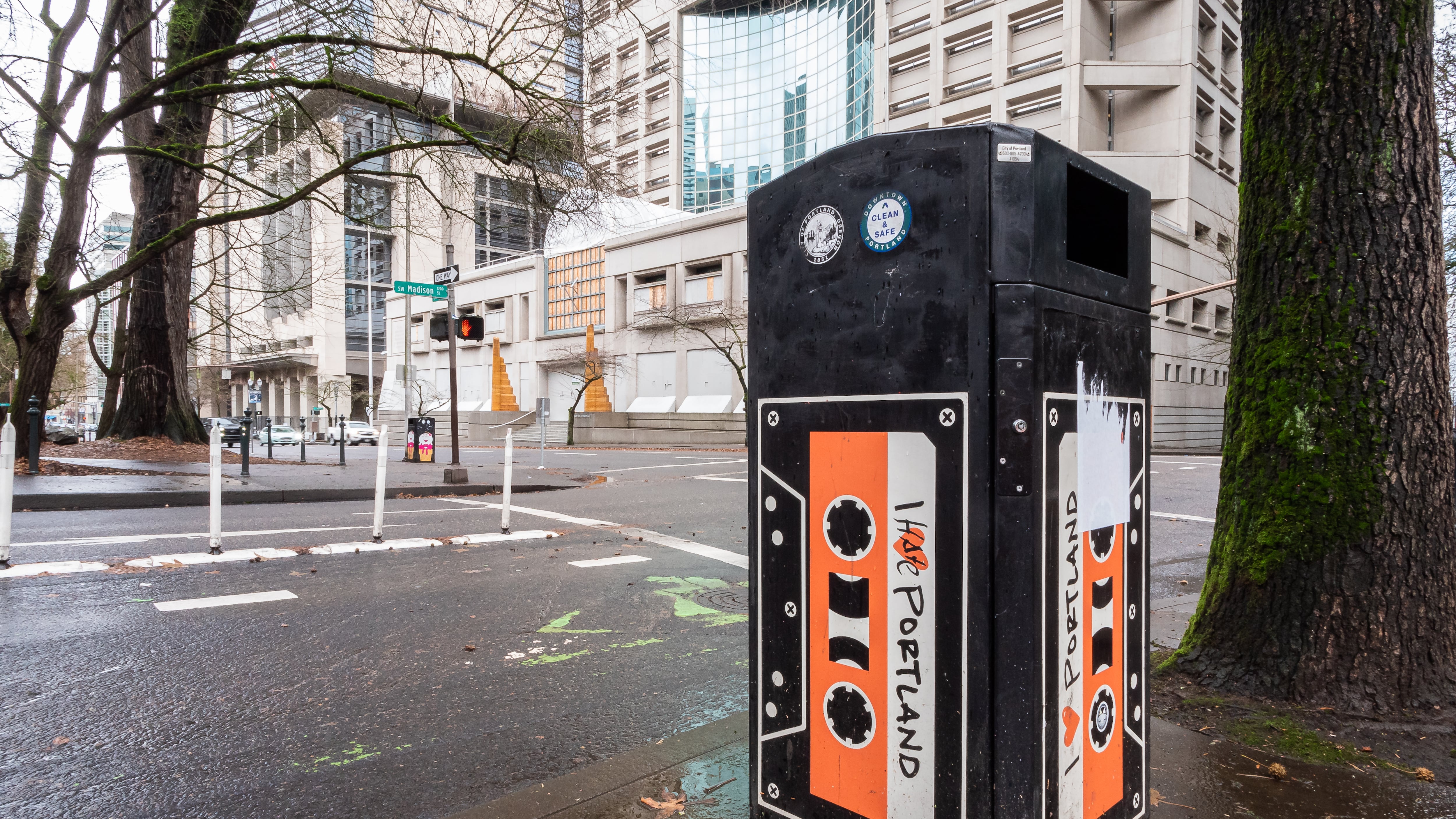To hear Jordan Schnitzer tell it, Portland is circling the drain.
Schnitzer, whose real estate holdings are mostly outside of Portland but whose headquarters is a stone’s throw from Pioneer Courthouse Square, thinks the city has too many taxes, too many tents, not enough cops, and almost no leaders who understand why members of the business sector are beating feet out of town.
At a Jan. 24 meeting of his new civic group, the Revitalize Portland Coalition, at Revolution Hall, Schnitzer said businesses are fleeing, taking their workers and their tax money with them. He’s not wrong. Portland’s office towers are emptying at an alarming rate as private-sector tenants move to the suburbs.
Kruse Way, a bland parkway in Lake Oswego, is becoming the metro area’s new Main Street. Many Portland companies have moved at least some staff to Kruse Woods, a collection of 18 low-slung office buildings amid tall oaks, flanked by an Olive Garden and an Applebee’s.
At Schnitzer’s meeting, Cayla Wardenburg, senior vice president at commercial broker Jones Lang LaSalle, flashed a slide showing all the refugee companies. Among them: Umpqua Bank, RBC Wealth Management, Hewlett-Packard, Bank of the West, Norris, Beggs & Simpson, and KinderCare Education.
Downtown Portland’s commercial vacancy rate was 26% at the end of 2022, according to Jones Lang LaSalle, compared with 19.2% in downtown Seattle and 22.5% in San Francisco’s central business district.
It’s only going to get worse, Wardenburg told the group. Her firm polled more than 200 Portland executives, and 1 in 3 said they were considering a move out of downtown. The biggest reason was taxes, Wardenburg said.
“But what I’ll point out is that if you combined safety, crime and homelessness into one singular issue, that would be the highest response,” Wardenburg said.
Read our cover story: Portland is losing some of its biggest fans.
The gloom kept coming at Rev Hall. Patrick Gilligan, executive vice president at development firm Lincoln Property, said Portland is more vulnerable than ever because places like Vancouver, Wash., are getting nice. It’s Vantucky no more.
“I like Portland,” Gilligan said. “I like the idiosyncratic food options I have. I like the housing stock and the architecture. But now I can just pop across the river. I think we’re at the precipice of a vicious cycle. The city, state and county have to take radical intervention right now to do something that is pro business.”
Juan Carlos Ordóñez, communications director at the Oregon Center for Public Policy, says the hired guns are telling executives what they want to hear. “The business community is always saying that they are paying too much,” Ordóñez says.
None of that is likely to deter Schnitzer. He’s determined to make city leaders listen to his new band of real estate experts.
“If you look at the backgrounds of our elected officials, there isn’t any one of them except Rene Gonzalez who has any real business experience,” Schnitzer said. “Most of them have done a wonderful job in social service agencies, which are important. But would you hire them for real estate solutions? They don’t have a clue.”

